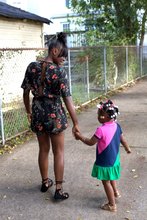0
Publication
Community:
“Families are borrowing from already-limited food budgets to keep a roof over their heads”
Authored by: Opportunity Starts at Home
Topics: Food insecurity, Housing, Nutrition, Partnerships, Research
 Shared by Mica O'Brien
Shared by Mica O'Brien
Mica O'Brien posted a
on Jan 18, 2019
Opportunity Starts at Home
“Families are borrowing from already-limited food budgets to keep a roof over their heads”
0
Publication
Community:
Access To Affordable Housing Increases Stability For Vulnerable Households And Helps Avert Homelessness.
Authored by: Opportunity Starts at Home
Topics: Homelessness, Housing, Partnerships, Research
 Shared by Mica O'Brien
Shared by Mica O'Brien
Mica O'Brien posted a
on Jan 18, 2019
Opportunity Starts at Home
Access To Affordable Housing Increases Stability For Vulnerable Households And Helps Avert Homelessness.
0
Publication
Community:
Investments in affordable housing are a proven catalyst for economic growth, job creation, and development.
Authored by: Opportunity Starts at Home
Topics: Cost effectiveness, Housing, Partnerships, Research
 Shared by Mica O'Brien
Shared by Mica O'Brien
Mica O'Brien posted a
on Jan 18, 2019
Opportunity Starts at Home
Investments in affordable housing are a proven catalyst for economic growth, job creation, and development.
0
Publication
Community:
Safe, affordable housing enables low-income people to climb up the income ladder and achieve the American Dream.
Authored by: Opportunity Starts at Home
Topics: Asset building, Housing, Mobility, Partnerships, Research
 Shared by Mica O'Brien
Shared by Mica O'Brien
Mica O'Brien posted a
on Jan 18, 2019
Opportunity Starts at Home
Safe, affordable housing enables low-income people to climb up the income ladder and achieve the American Dream.
0
Publication
Community:
"Residential segregation is at the heart of racial inequality in the country. All of the disparities in the U.S. — in education, in income, wealth, employment, health — between the races are all fundamentally linked to residential segregation. There’s no real way to deal with disparities between black and white people without dealing with this."
Authored by: Opportunity Starts at Home
Topics: Housing, Low-income, Partnerships, Racial inequalities, Research
 Shared by Mica O'Brien
Shared by Mica O'Brien
Mica O'Brien posted a
on Jan 18, 2019
Opportunity Starts at Home
"Residential segregation is at the heart of racial inequality in the country. All of the disparities in the U.S. — in education, in income, wealth, employment, health — between the races are all fundamentally linked to residential segregation.
0
Publication
Community:
Individuals transitioning out of the criminal justice system need a good place to call home so that they can reconnect with society and rebuild their lives.
Authored by: Opportunity Starts at Home
Topics: Criminal justice, Homelessness, Housing, Partnerships, Research
 Shared by Mica O'Brien
Shared by Mica O'Brien
Mica O'Brien posted a
on Jan 18, 2019
Opportunity Starts at Home
Individuals transitioning out of the criminal justice system need a good place to call home so that they can reconnect with society and rebuild their lives.
0
Publication
Community:
Quality affordable housing can be a “vaccine” which prevents long-term health problems and promotes healthy, productive lives. When a family’s housing situation is unaffordable and unstable, chances to lead a healthy life dwindle rapidly.
Authored by: Opportunity Starts at Home
Topics: Child welfare, Health, Homelessness, Housing, Low-income, Partnerships, Seniors, Stability
 Shared by Mica O'Brien
Shared by Mica O'Brien
Mica O'Brien posted a
on Jan 18, 2019
Opportunity Starts at Home
Quality affordable housing can be a “vaccine” which prevents long-term health problems and promotes healthy, productive lives. When a family’s housing situation is unaffordable and unstable, chances to lead a healthy life dwindle rapidly.
0
Publication
Community:
Teachers know that children learn better and are more likely to graduate when they live in a stable, affordable home.
Authored by: Opportunity Starts at Home
Topics: Child welfare, Early childhood, Education, Housing, Partnerships, Youth
 Shared by Mica O'Brien
Shared by Mica O'Brien
Mica O'Brien posted a
on Jan 18, 2019
Opportunity Starts at Home
Teachers know that children learn better and are more likely to graduate when they live in a stable, affordable home.
0
Publication
Community:
Jan 1, 2019
According to the Institute for Women’s Policy Research, 26% of undergraduate students--about 4.8 million students--are raising dependent children. Students of color are more likely to be parents; additionally, about 70% of parenting students are women. These students are balancing many competing demands: attending classes, keeping up with schoolwork, and caring for children. College and child care are costly, with the average cost of child care ranging between $8,000-$35,000 each year. As a result, parenting students are more likely to experience food and housing insecurity than students who do not have children.
Authored by: SchoolHouse Connection
Topics: Dual-generation, Early childhood, Education, Housing, Partnerships, Post-secondary, Youth
 Shared by Mica O'Brien
Shared by Mica O'Brien
Mica O'Brien posted a
on Jan 16, 2019
According to the Institute for Women’s Policy Research, 26% of undergraduate students--about 4.8 million students--are raising dependent children. Students of color are more likely to be parents; additionally, about 70% of parenting students are women.
0
Publication
Community:
Jan 1, 2019
Postsecondary attainment is increasingly necessary to move out of poverty and homelessness and live a healthy, productive life. Yet youth experiencing homelessness face barriers in transitioning from secondary to postsecondary education, as well as barriers to financial aid, college retention, and college completion. This fact sheet summarizes existing data and information on the higher education experiences of homeless youth.
Authored by: SchoolHouse Connection
Topics: Education, Food insecurity, Homelessness, Housing, Post-secondary, Research, Youth
 Shared by Mica O'Brien
Shared by Mica O'Brien
Mica O'Brien posted a
on Jan 16, 2019
Postsecondary attainment is increasingly necessary to move out of poverty and homelessness and live a healthy, productive life.
0
Publication
Community:
Oct 9, 2018
Women with children, especially, stay hidden in fear of losing custody of their children. As a result, we will never see them camping in tents or in downtown parks.
Authored by: Mary Ellen Mitchell for SchoolHouse Connection
Topics: Early childhood, Homelessness, Housing, Legislation & Policy, Low-income, Safety, Stability
 Shared by Mica O'Brien
Shared by Mica O'Brien
Mica O'Brien posted a
on Jan 11, 2019
Mary Ellen Mitchell for SchoolHouse Connection
Women with children, especially, stay hidden in fear of losing custody of their children. As a result, we will never see them camping in tents or in downtown parks.
0
Publication
Community:
Jan 11, 2019
This short article expands on the press release issued last month by six national organizations. It explains why HUD’s data are so contentious, and why other data sources provide a more accurate picture of children, youth, and family homelessness.
Authored by: SchoolHouse Connection
Topics: Homelessness, Housing, Metrics, Research, Youth
 Shared by Mica O'Brien
Shared by Mica O'Brien
Mica O'Brien posted a
on Jan 11, 2019
This short article expands on the press release issued last month by six national organizations. It explains why HUD’s data are so contentious, and why other data sources provide a more accurate picture of children, youth, and family homelessness.
0
Publication
Community:
Dec 1, 2018
A guide for youths who are or were homeless, or are at risk of experiencing homelessness
Authored by: U.S. Department of Education
Topics: Education, Homelessness, Housing, Low-income, Post-secondary
 Shared by Mica O'Brien
Shared by Mica O'Brien
Mica O'Brien posted a
on Jan 8, 2019
U.S. Department of Education
A guide for youths who are or were homeless, or are at risk of experiencing homelessness
0
Publication
Community:
Jan 2, 2019
Housing quality, instability, and unaffordability threaten the well-being of millions of children across the nation. Research shows that housing is the first rung on the ladder to economic opportunity and that a person’s access to opportunity is intrinsically linked with that of the community where they live. As home prices increase, the gap between rents and incomes continues to widen, and nearly half of today’s renters are cost burdened. Child welfare professionals, educators, and pediatricians can strengthen their work by understanding the central importance of housing as a determinant of wide-ranging outcomes for the country’s youngest generation.
Authored by: Veronica Gaitan for How Housing Matters
Topics: Child welfare, Early childhood, Health, Housing, Research, Safety
 Shared by Mica O'Brien
Shared by Mica O'Brien
Mica O'Brien posted a
on Jan 7, 2019
Veronica Gaitan for How Housing Matters
Housing quality, instability, and unaffordability threaten the well-being of millions of children across the nation.
0
Publication
Community:
Feb 8, 2018
Homeownership often translates to wealth accumulation, and wealth grows generationally. As a result, the wealth gap between white and black families has grown over the past 50 years. In 2016, white wealth was seven times greater than black wealth. Even if black families own homes, home equity does not necessarily provide the same savings and wealth-building opportunity as it does for white families.
Authored by: Janae Ladet for How Housing Matters
Topics: Housing, Legislation & Policy, Racial inequalities, Research
 Shared by Mica O'Brien
Shared by Mica O'Brien
Mica O'Brien posted a
on Jan 7, 2019
Janae Ladet for How Housing Matters
Homeownership often translates to wealth accumulation, and wealth grows generationally. As a result, the wealth gap between white and black families has grown over the past 50 years. In 2016, white wealth was seven times greater than black wealth.
0
Publication
Community:
Apr 10, 2018
State and local governments are debating and adopting new landlord-tenant laws and pilot programs, such as expanded legal representation and just-cause eviction requirements. Yet, few housing experts understand evictions well enough to channel the demand for change into clarity about specific eviction problems and potential solutions. Now is the time for policymakers and advocates to get smart. Here are five strategies for policymakers to consider as they address America’s eviction crisis.
Authored by: Maya Brennan for Urban Institute
Topics: Housing, Legislation & Policy, Low-income, Research, Stability
 Shared by Mica O'Brien
Shared by Mica O'Brien
Mica O'Brien posted a
on Dec 21, 2018
Maya Brennan for Urban Institute
State and local governments are debating and adopting new landlord-tenant laws and pilot programs, such as expanded legal representation and just-cause eviction requirements.
0
Publication
Community:
Oct 1, 2016
This report examines strategies used by local governments to address rising housing costs and displacement of low-income households in gentrifying neighborhoods. To assist tenants at risk of displacement, the report details strategies to regulate the landlord/tenant relationship well as strategies to provide assistance for households that move. To create and preserve affordable housing, the report explores ways to use city-owned land and other resources strategically to promote affordable housing in areas where costs are on the rise. It also examines ways to harness the market, such as inclusionary zoning and linkage fees. The report is part of an ongoing series of work by the NYU Furman Center on gentrification, but is the first to provide an overview of policy responses to the effects rapidly rising rents.
Authored by: Jessica Yager, Luke Herrine, and Nadia Mian for NYU Furman Center
Topics: Community development, Housing, Low-income, Stability
 Shared by Mica O'Brien
Shared by Mica O'Brien
Mica O'Brien posted a
on Dec 21, 2018
Jessica Yager, Luke Herrine, and Nadia Mian for NYU Furman Center
This report examines strategies used by local governments to address rising housing costs and displacement of low-income households in gentrifying neighborhoods.
0
Publication
Community:
Dec 1, 2018
New York City’s UAC has generated substantial interest as other jurisdictions across the U.S. consider or implement similar programs. In June 2018, San Francisco voters approved a ballot initiative requiring the city to establish, fund, and run a program to provide legal representation to all tenants facing eviction regardless of income. The Los Angeles City Council approved a motion in August 2018 instructing the housing department to develop recommendations for a new eviction defense bill or program.
Authored by: Vicki Been, Deborah Rand, Nicole Summers, and Jessica Yager for NYU Furman Center
Topics: Housing, Legislation & Policy, Low-income, Stability
 Shared by Mica O'Brien
Shared by Mica O'Brien
Mica O'Brien posted a
on Dec 21, 2018
Vicki Been, Deborah Rand, Nicole Summers, and Jessica Yager for NYU Furman Center
New York City’s UAC has generated substantial interest as other jurisdictions across the U.S. consider or implement similar programs.
0
Publication
Community:
Mar 28, 2018
Communities can leverage local housing and neighborhood policies to address gun violence through tools such as demolition, vacant property maintenance and reuse, foreclosure mitigation counseling, homeownership support programs, code enforcement, and zoning.
Authored by: Christina Plerhoples Stacy for How Housing Matters
Topics: Community development, Housing, Partnerships, Place-based, Safety
 Shared by Housing Is
Shared by Housing Is
Housing Is posted a
on Dec 20, 2018
Christina Plerhoples Stacy for How Housing Matters
Communities can leverage local housing and neighborhood policies to address gun violence through tools such as demolition, vacant property maintenance and reuse, foreclosure mitigation counseling, homeownership support programs, code enforcement, and zoning.
0
Publication
Community:
Dec 17, 2018
Housing assistance plays a crucial role in stabilizing so many elements of a family’s daily life, including employment, education, and health. But despite its important role, our nation’s public housing program faces an uncertain future.
Authored by: Susan J. Popkin, Diane K. Levy, and Corianne Payton Scally for The Urban Institute
Topics: Funding, Housing, Legislation & Policy, RAD
 Shared by Mica O'Brien
Shared by Mica O'Brien
Mica O'Brien posted a
on Dec 17, 2018
Susan J. Popkin, Diane K. Levy, and Corianne Payton Scally for The Urban Institute
Housing assistance plays a crucial role in stabilizing so many elements of a family’s daily life, including employment, education, and health. But despite its important role, our nation’s public housing program faces an uncertain future.
0
Publication
Community:
Dec 1, 2018
With collectively more than 100 years of policy expertise and values-based leadership between us, Ascend at the Aspen Institute and the Housing Opportunity and Services Together initiative at the Urban Institute partnered to develop a set of recommendations on how to harness assisted housing and public-private housing partnerships for better outcomes for families.
Authored by: The Urban Institute and ASCEND: The Aspen Institute
Topics: Dual-generation, Early childhood, Education, Family engagement, Health, Housing, Low-income, Place-based, Research, Stability
 Shared by Mica O'Brien
Shared by Mica O'Brien
Mica O'Brien posted a
on Dec 6, 2018
The Urban Institute and ASCEND: The Aspen Institute
With collectively more than 100 years of policy expertise and values-based leadership between us, Ascend at the Aspen Institute and the Housing Opportunity and Services Together initiative at the Urban Institute partnered to develop a set of recommendations on how to harness assisted housing and pub
0
Publication
Community:
Dec 6, 2018
The administration has proposed an expansion of the “public charge” rule that would make it more difficult for applicants whom officials deem likely to rely on public assistance to obtain lawful permanent residence (a “green card”) or a temporary visa. Among other changes, the rule would expand public charge determinations to include an applicant’s enrollment in the Medicaid program. Adding Medicaid to the list of public charge benefits that would be considered may force immigrants to choose between health insurance coverage and a future green card—with adverse consequences for parents and their children.
Authored by: Emily M. Johnston, Genevieve M. Kenney, and Jennifer M. Haley for The Urban Institute
Topics: Affordable Care Act, Health, Housing, Immigrants, Legislation & Policy, Medicaid / Medicare, Safety
 Shared by Mica O'Brien
Shared by Mica O'Brien
Mica O'Brien posted a
on Dec 6, 2018
Emily M. Johnston, Genevieve M. Kenney, and Jennifer M. Haley for The Urban Institute
The administration has proposed an expansion of the “public charge” rule that would make it more difficult for applicants whom officials deem likely to rely on public assistance to obtain lawful permanent residence (a “green card”) or a temporary visa.
0
Publication
Community:
Nov 28, 2018
Housing instability among families and children can be detrimental to child welfare, health, economic, and other outcomes. Policymakers and service providers in these fields should consider weaving housing into their approaches. Treating instability at its roots can relieve the trade-offs and stress that emerge when no decent housing is affordable. Evidence indicates that affordable housing can improve a range of outcomes for families and—in combination with short-term or long-term services—help providers tackle complex challenges head-on.
Authored by: Aaron Shroyer for The Urban Institute
Topics: Child welfare, Family engagement, Housing, Low-income, Stability, Supportive housing
 Shared by Mica O'Brien
Shared by Mica O'Brien
Mica O'Brien posted a
on Nov 29, 2018
Aaron Shroyer for The Urban Institute
Housing instability among families and children can be detrimental to child welfare, health, economic, and other outcomes. Policymakers and service providers in these fields should consider weaving housing into their approaches.
0
Publication
Community:
Nov 20, 2018
People with mental health disabilities are vastly overrepresented in the population of people who experience homelessness. Of the more than 550,000 people in America who experienced homelessness on a given night in 2017, 1 in 5 had a mental illness. The proportion of people experiencing chronic homelessness with mental health disabilities was even higher—nearly 1 in 3. Despite this fact, the reality is that most people with mental illness fortunately do not experience homelessness: While about 20 percent of all adults in the United States have a mental illness, less than two-tenths of 1 percent of people in the country experienced homelessness on a given night in 2017.
Authored by: Heidi Schultheis for Center for American Progress
Topics: Depression, Disabilities, Homelessness, Housing, Legislation & Policy, Low-income, Mental health, Partnerships, Preventative care, Stability, Substance abuse, Supportive housing
 Shared by Mica O'Brien
Shared by Mica O'Brien
Mica O'Brien posted a
on Nov 20, 2018
Heidi Schultheis for Center for American Progress
People with mental health disabilities are vastly overrepresented in the population of people who experience homelessness. Of the more than 550,000 people in America who experienced homelessness on a given night in 2017, 1 in 5 had a mental illness.
0
Publication
Community:
Resources and presentation slides
Authored by: Food Research & Action Center
Topics: Food insecurity, Housing, Immigrants, Legislation & Policy
 Shared by Mica O'Brien
Shared by Mica O'Brien
Mica O'Brien posted a
on Nov 15, 2018
Food Research & Action Center
Resources and presentation slides




 Shared by Housing Is
on Dec 20, 2018
Shared by Housing Is
on Dec 20, 2018





